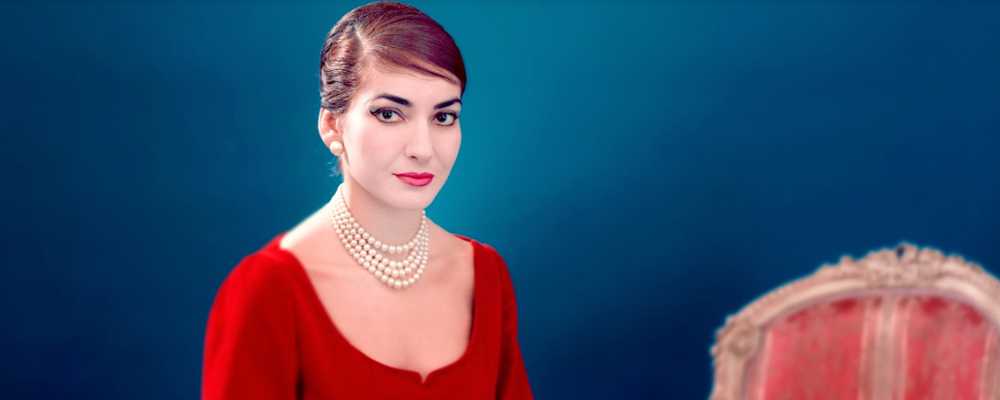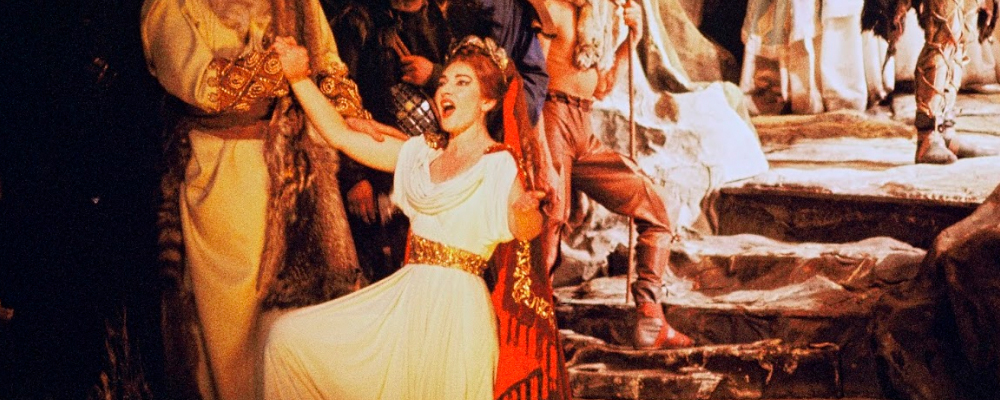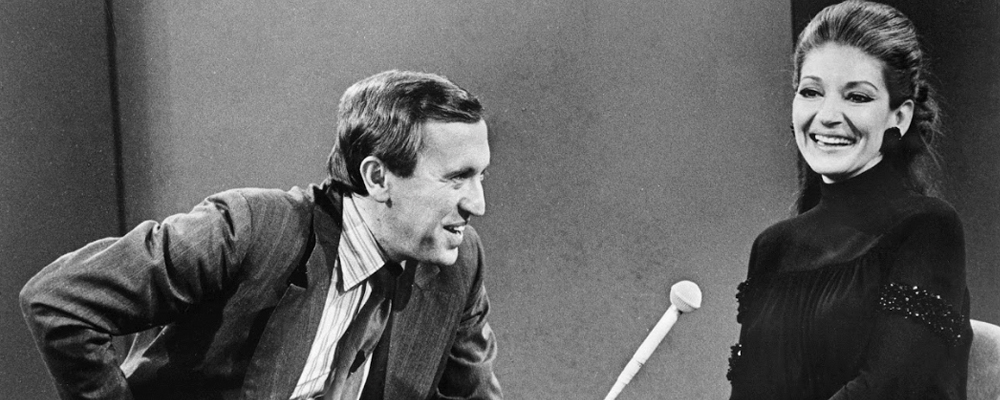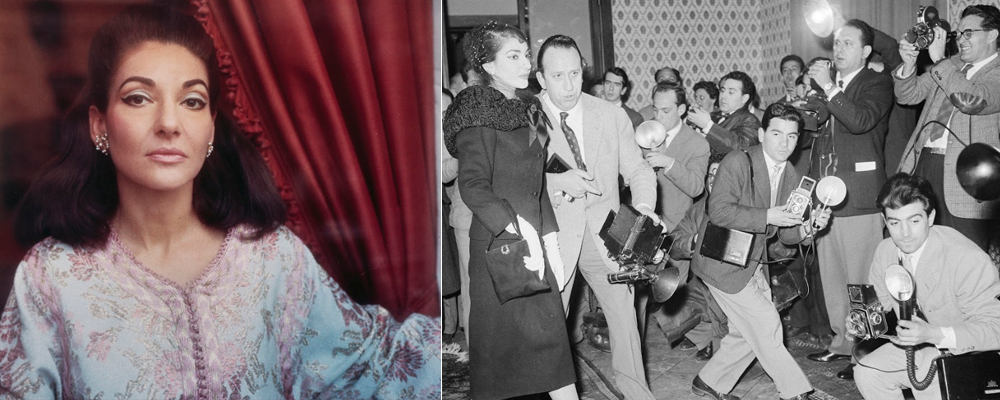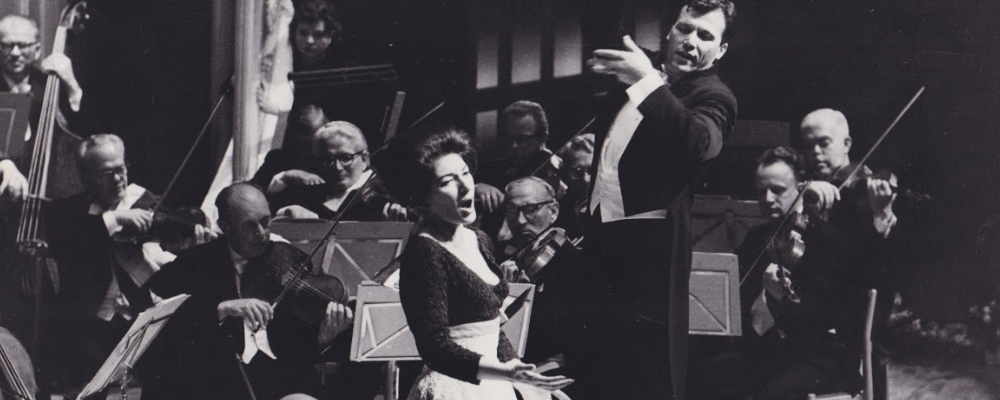‘Maria by Callas’ Captures the Legendary Opera Singer’s Talent, Triumph and Tragedy
Adi Mehta
Some artists are so engrossed in their craft, and the requirements that it entails, that there becomes no discernible line between public persona and personal identity. No one fits this category more than soprano legend Maria Callas, so celebrated as to earn the title “La Divina,” yet subjected to virulent criticism by a hostile media throughout her career. Tom Volf’s film “Maria by Callas” draws attention to Callas’ peculiar case in its very title. “Callas” is the name that comes to mind when one thinks of the opera virtuoso, while “Maria” is the familiar name of the lady on stage. Considering that documentaries aim to make sense of an artist’s body of work by looking at the person behind the art, “Callas by Maria” would be a more natural title for this film. By opting for “Maria by Callas,” Volf inverts this, highlighting the blurred line between person and performer. Unlike nearly all documentaries, which rely largely on talking heads, and piece together a composite storyline of an artist’s life from third person accounts, Volf’s film paints its portrait of Callas from the singer herself, using newsreels, clips from rare interviews, clips of live performances, and footage set to narration of Callas’ own words. The result is something of a curated autobiography, and it makes for a one-of-a-kind documentary.
The film begins with a quick snippet of concert footage, and cuts straight to an interview in which Callas talks about her upbringing, about how an overly ambitious mother practically forced her into music, and deprived her of a childhood. The cheerful poise with which she speaks bellies the resentment that her words express, and is very much in line with the ambivalence that she always exhibited toward her career. Volf brings us through Callas’ time at the Conservatoire of Athens, with a fawning interview segment with her mentor at the institution. Then, things suddenly get staggeringly dramatic, as we are brought front and center to a live performance, showing the star in all her glory, hitting high notes that seem to defy physics. While opera enthusiasts will surely be in for a treat from the rare, archival footage, those less acquainted with the art form will get a shining example of why exactly it arouses so much passion. In a flash, it becomes clear why Callas deserves the title “La Divina.”
Things take a dark turn when the narrator reads us Callas’ tortured personal account of the infamous Rome Opera performance, in which Callas had to cancel after only one act, due to bronchitis. From nothing but primary source accounts of a real life, Volf is able to create a drama more compelling than most painstakingly crafted works of fiction. When the media suddenly unleashes their venom on Callas, scapegoating her for no greater crime than once falling ill, we are forced to fathom the fickle, treacherous nature of public opinion, and the disturbingly ephemeral nature of stardom.
A later interview finds Callas speaking about how the all-encompassing nature of her career forbids her from a fulfilling domestic life. Calls speaks with a comfortable aloofness that reflects a certain learned helplessness. Volf presents montages of Callas in her everyday life, along with more narration in her own worlds. At one point, we hear her saying, “Dear friends, pray for your poor Maria.” Volf does a remarkably effective job bringing us back to a time past. The color of the film, and the transatlantic accents themselves are enough to plunge one into nostalgia, but the carefully chosen footage serves to remind us of often overlooked changes in popular culture over the year. For instance, we see Callas step off a plane to a sea of intrusive reporters. As much as we glorify stars today, it’s nothing compared to the days of Callas’ career, and this shot gives an idea of how suffocating a celebrity’s life must have been.
Certain concert footage captures Callas as if possessed, with a devilish grin on her face, a woman completely captivated and entranced. It’s fitting for an artist who devoted her entire life to her music. As the film continues, we see the career steadily taking its toll on Callas. At one point, we hear a segment from a personal letter, in which she claims that she doubts she has the strength to keep daring incense the media like she did that one day at the Rome Opera. On the other hand, there are segments of Callas profusely expressing her gratitude to her fans in the most sincere manner. There’s a particular black and white interview that Wolf periodically returns to throughout the film, giving the otherwise patchy collage a sense of regularity. This interview shows Callas relatively at easy, coyly making facetious remarks about her romantic relationships, and showing her at her most charming. However, in Callas’ personal accounts, from her journals, she sounds decidedly embittered and fractured, when discussing her involvement with Greek shipping tycoon Aristotle Onassis, who left her for Jackie Kennedy. When comparing this to her suave display in front of interviewers, one can’t help but wonder whether she was always merely playing a part in front of the camera, just as she did on stage.
Unfortunately, Volf omits certain significant events in Callas’ life, such as the dramatic weight loss to which many credit her eventual vocal deterioration. Volf can come across as something of a fawning fan, willing to take liberties of artistic license, so as to paint a pretty picture of the object of his worship. Considering Callas’ downright cruel treatment by the media throughout her life, however, it’s only fair that Volf overcompensate. The unique format of the film draws you into Callas’ life from her own perspective, forgoing the laborious narrative arcs of autobiographies, and instead painting a vivid portrait from lovingly selected bits and pieces. It’s the documentary that Maria Callas deserves, capturing all her talent, triumph, and tragedy.
“Maria by Callas” opens Nov. 1 in New York and Los Angeles, expanding to select cities beginning Nov. 9.

